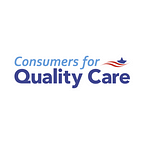Governors: Avoid Waivers That Gut Key Consumer Protections
As governors gathered last week in Washington, D.C., many of their states were considering dangerous waivers that, if implemented, pose a serious threat to Americans’ access to quality health care.
These Section 1332 State Innovation and Section 1115 Medicaid waiver requests to the Centers for Medicare and Medicaid Services (CMS) seek to radically reshape state health care markets and safety net programs. While CMS claims they are designed to “give states additional flexibility to design and improve their programs,” we are concerned that these waivers would — and in a few states already have — dramatically weaken access and coverage for many Americans.
As a group of health care advocates who have come together to speak up for patients and health care consumers, our mission is to ensure patients remain the most important stakeholder in any health care policy decision, in this case, the state’s decision to submit a waiver request that will decide the health care of millions in their state. Too many waivers chip away at key protections for consumers, including cutting transportation to and from health service appointments, reducing dental and eye coverage, increasing — or doubling — out-of-pocket costs for consumers, restricting access to medicines and implementing premiums and onerous work requirements as conditions of receiving care.
States should consider a number of key questions outlined in this waiver checklist before submitting a request, including whether the waiver preserves quality care by offering adequate provider networks, emergency care and essential health benefits or if it puts patients at the center by ensuring benefits for special populations, providing adequate exemptions for those with chronic conditions and engaging health care advocates in providing input on the waiver’s provisions.
Additionally, states should look for ways to cut costs for consumers by preventing cost shifts or cost increases and capping Medicaid out-of-pocket costs. States should also ensure there are no barriers to coverage, including an accessible network of doctors and options for prescription drugs.
The answers to these questions are critical. Higher costs, cuts in coverage and reduced access to quality care will harm consumers in every state across the country.
Every state’s top priority is preserving quality health care for their constituents, and careful review and consideration should be given when submitting each waiver request. The risks to quality care and access are high when waivers are not implemented with consumers at their core.
